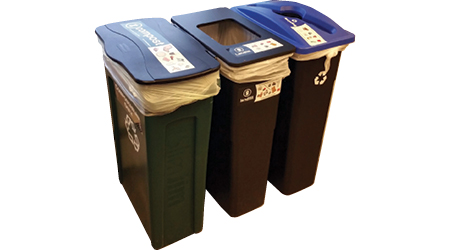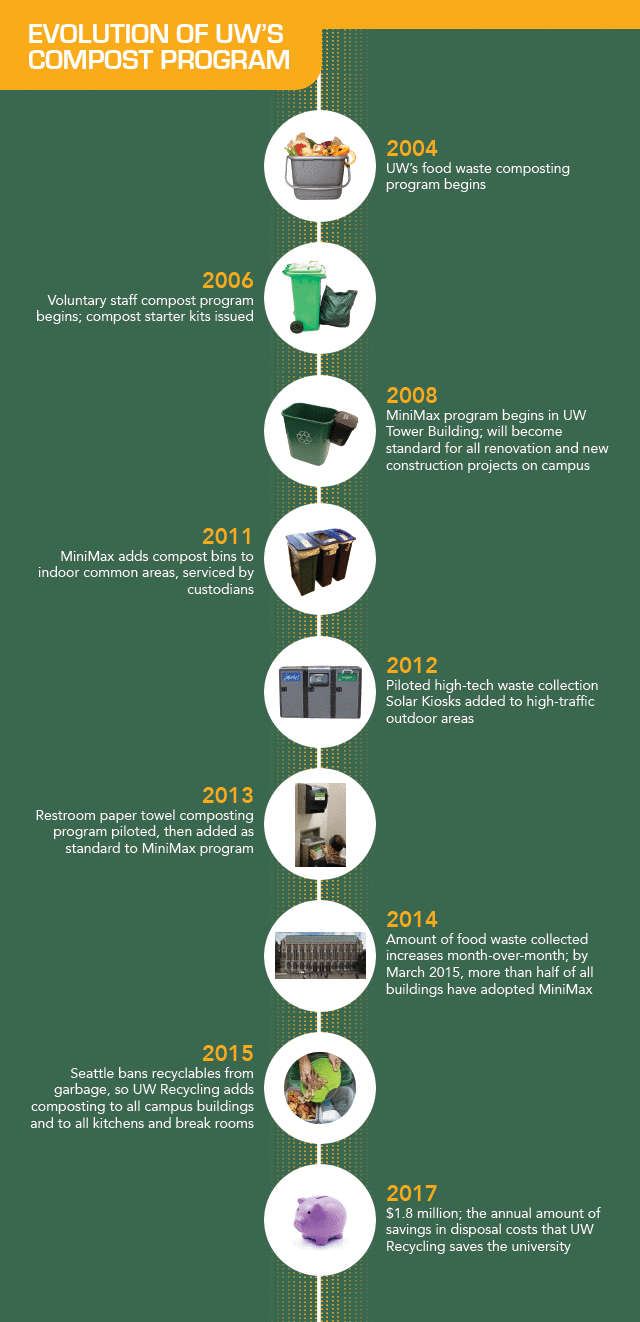
Seeking out green cleaning products is one positive step toward creating a more sustainable educational environment. Another is implementing waste diversion and recycling programs. Once a campus or school district has tackled that, the next element to implement within an organization’s green strategy is the creation of a composting program.
What exactly is compost? It’s the sustainable, nutrient-rich soil product of decomposed food and organic waste. Composting turns food waste, food-soiled paper products, and compostable serviceware into nutrients for new plants to grow. Along with being good for the environment, composting also:
• Costs less than putting food waste into the landfill.
• Improves soil quality when the compost is applied to grounds care.
• Reduces the methane and nitrous oxide generated by landfills, two greenhouse gases that contribute to global warming.
At the University of Washington in Seattle, a waste diversion system known as MiniMax helps the campus strive toward the goal of diverting 70 percent of waste from landfills by 2020. This is important and achievable, because 95 percent of consumer waste at UW is recyclable or compostable.
Based on the idea of minimizing waste and maximizing recycling, MiniMax consists of a deskside, self-service waste collection system that enables building occupants to take personal responsibility for waste generation. This self-service model, which has occupants emptying their own small bins into centralized garbage, recycling and compost containers, builds awareness of how individuals handle waste.
MiniMax also allows custodians to redirect their collection efforts to cleaning tasks that are more essential to the health of the university, and — since the bins are unlined — significantly reduces the number of plastic liners that go to the landfill.
The timeline below shows the milestones in the University of Washington’s more-than-10-year journey establishing its compost program. While it is understood that every state and county has a different set of resources and infrastructure available, UW’s story can serve as a template to customize a framework that works best for any educational community.
Launching A Composting Program

 Celebrating BSCAI's 60th Anniversary eBook
Celebrating BSCAI's 60th Anniversary eBook The Down and Dirty on Cleaning in Virus Season
The Down and Dirty on Cleaning in Virus Season How Surfactant Use is Expanding in Commercial Cleaning
How Surfactant Use is Expanding in Commercial Cleaning